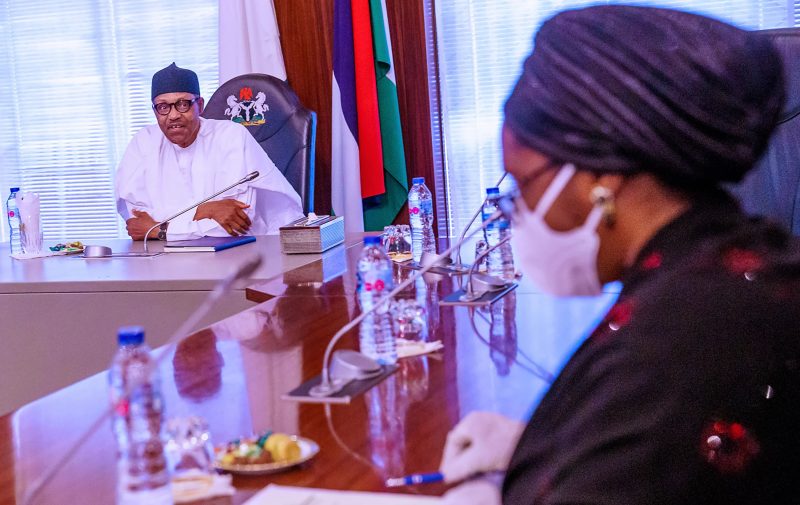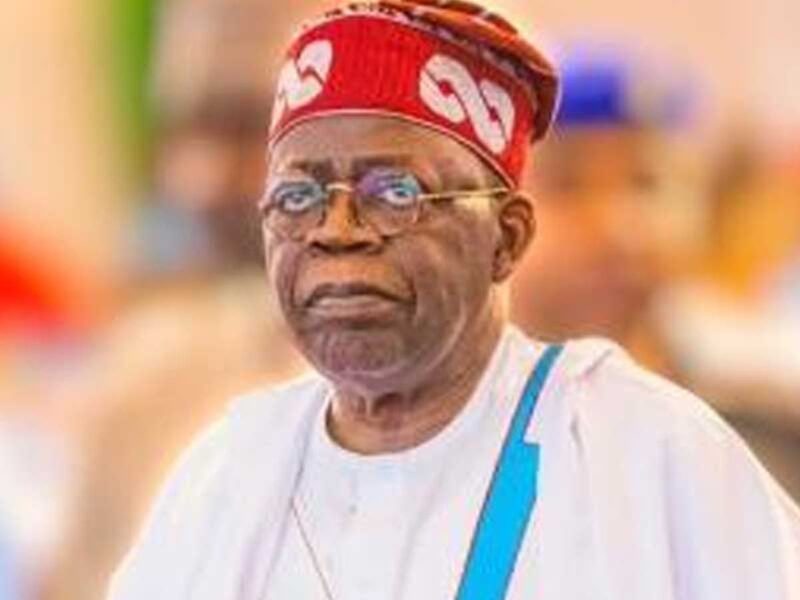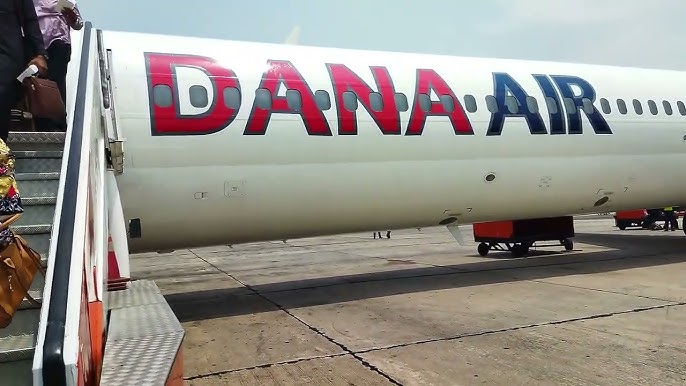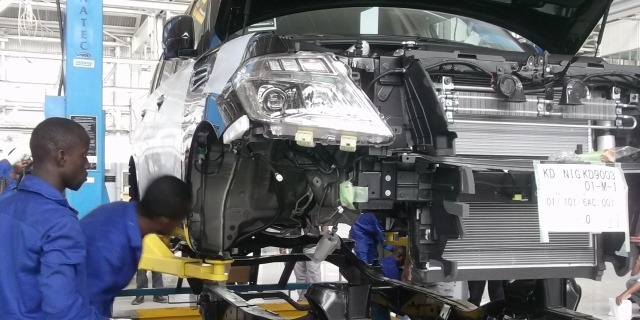Business
‘More expensive than subsidy?’ — Is FG’s N5,000 transport grant dead on arrival?

Zainab Ahmed, minister of finance, budget, and national planning, said on Tuesday that the federal government would remove fuel subsidy by 2022 and replace it with a N5,000 grant for the poorest Nigerians. According to her, about tens of millions Nigerians would benefit from the transport grant.
Following the revelation, Nigerians online and offline have weighed in on the policy, raising quite a number of reservations about the policy, which is billed to take off sometime between February to June 2022.
While some say the policy is inevitable, following the fiscal condition of the Nigerian states, others differ, emphasising that Nigeria is an oil-producing country and should not have to pay so much for petrol.
TheCable on Wednesday reported that Nigeria had the third-lowest petrol pump price in Africa, after Angola and Algeria. This position strengthens the argument for keeping oil subsidies — if other oil-producing states are doing it, Nigeria can keep subsidies too.
On the flip side, some Nigerians believe the removal of subsidies is long overdue. This school of thought claims that Nigeria is at least 10 years late to the party. They see subsidies as unsustainable, inefficient, and responsible for the lack of competition in the oil sector.
READ ALSO:
- Religious Leaders in the North appeal to Davido for help
- Alleged N11.8b scandal: Ayu vows to probe past PDP administrations
- Tinubu visited me to seek support for presidential ambition – Yakasai
However, a large chunk of both schools of thought does not entirely believe in the idea of giving N5,000 transport grants to the poorest Nigerians. Some say the grant will be more expensive than the existing fuel subsidy and would have an even worse impact on state finances.

Zainab Ahmed taking questions at NDU launch event
TheCable has reviewed all we know about this policy to draw informed conclusions on the subsidy removal and replacement plan.
You may have seen claims online suggesting that N5,000 for 40 million Nigerians monthly, would amount to N2.4 trillion, which is more than the existing subsidy payments of about N1.8 trillion per year. Mathematically, this is correct. But according to what we know about the policy, this is not exactly the case.
Speaking at the launch of the Nigeria Development Update (NDU) hosted by the World Bank, the minister of finance, said the number of beneficiaries would vary between 20 million and 40 million.
During her opening speech, she said: “Ahead of the target date of mid-2022 for the complete elimination of fuel subsidies, we are working with our partners on measures to cushion potential negative impact of the removal of the subsidies on the most vulnerable at the bottom 40% of the population.
“One of such measures would be to institute a monthly transport subsidy in the form of cash transfer of N5,000 to between 30 – 40 million deserving Nigerians.”
For 30 million Nigerians, the cost of maintaining this grant per year will be N1.8 trillion, which is also as bad as the subsidy payment itself. Going by what the minister initially said, the cost of the grants is worse. This drives the argument for keeping subsidies.
However, the minister also said during the panel discussion that the grant may not get to all 40 million Nigerians, suggesting that the final numbers will be dependent on available resources. This means a lot less than N1 trillion may eventually be spent on delivering the policy.
READ ALSO:
- KPOFIRE: Woman leaves her three children in a boat, returns to meet them all burnt
- There is no basis begging Buhari to release Sunday Igboho – Afenifere
- Special forces eliminate bandits terrorizing Kaduna-Abuja road
TIME: FEBRUARY OR JUNE 2022?
Another challenge with the project is the timeline; questions abound on when exactly this project would kick-off. According to the Petroleum Industry Act, subsidies should be removed by February 2022. But according to the 2022 budget, subsidies will be paid till June, 2022.
Two contradicting pieces of legislation? Not exactly. When the PIB was signed by President Muhammadu Buhari, the president set up an implementation committee to execute PIA within the space of one year.
The committee, in line with the ministry of finance, budget and national planning, made room for subsidies till June 2022, but the removal could be as early as February to save the government some subsidy funds.
Will December, January, February be enough time to convince Nigerians on subsidy removal? Time will tell.

The beneficiaries would be identified as they were with other SIPs under the Buhari government, but payments will not be made physically like this
HOW WOULD THE 40M NIGERIANS BE SELECTED?
Yes, this is a recurrent question. But according to the minister, the selection process will build on the existing conditional cash transfer register used by the office of the vice-president in administering payments to poor and vulnerable Nigerians in the past.
The minister said the government will be working with state governments and non-governmental organisation (NGO) to ensure that the people who get the grant are the ones who actually get the funds.
READ ALSO:
- Kidnappers of Ondo N-Power teachers, principals, demand N35m
- Proscription of Bandits: FG has succumbed to blackmail – Gumi
- Diezani loses bid to recover $40m jewellery seized by Nigerian govt
DEAD ON ARRIVAL?
The World Bank recommended that Nigeria “implement a large-scale (covering 25% to 50% of the population) and time-bound targeted cash-transfer program to mitigate impacts of high inflation and the PMS subsidy removal.”
It also asked the government to “redirect savings from PMS subsidy to finance primary health, basic education, and rural connectivity projects” with the country.
The bank estimates that subsidy savings could be as high as N3 trillion per year. If that is the reality, then Nigeria can go ahead with the cash transfers, and still have some money to finance primary health, basic education, and rural connectivity projects.
However, going by 2019 figures, subsidy savings will be less than N2 trillion, while N5,000 to 40 million Nigerians will amount to N2.4 trillion. At that rate, there will be no savings for other projects recommended by the bank.
Dead on arrival? A lot will depend on the final implementation plans.
TheCable
Business
Nigerians can now access N100bn consumer credit till May 14 – Tinubu

Nigerians can now access N100bn consumer credit till May 14 – Tinubu
President Bola Tinubu has approved the commencement of the N100 billion Consumer Credit Scheme for Nigerians to ease the economic hardship facing the country.
Indeed, the President said interested Nigerians could visit the portal of Nigerian Consumer Credit Corporation before May 15, 2024.
President’s spokesperson, Ajuri Ngelale, revealed this in a statement on Wednesday.
Newstrends reports that food prices and other goods and services have skyrocketed since June last year after fuel subsidy removal.
The situation has been compounded by astronomical increase in foreign exchange rate, with the naira hitherto N450/$ before May 29 last year currently trading around N1,200 to a United States dollar at both official and parallel markets.
Part of the Wednesday’s statement read, “Consumer credit serves as the lifeblood of modern economies, enabling citizens to enhance their quality of life by accessing goods and services upfront, paying responsibly over time. It facilitates crucial purchases, such as homes, vehicles, education, and healthcare, which are essential for ongoing stability and the pursuit of their aspirations.
“Individuals build credit histories through responsible repayment, unlocking more opportunities for a better life.
“The increased demand for goods and services also stimulates local industry and job creation.
“The President believes every hardworking Nigerian should have access to social mobility, with consumer credit playing a pivotal role in achieving this vision.
“The Nigerian Consumer Credit Corporation (CREDICORP) achieves its mandate through the following: Strengthening Nigeria’s credit reporting systems and ensuring every economically active citizen has a dependable credit score. This score becomes personal equity they build, facilitating access to consumer credit, Offering credit guarantees and wholesale lending to financial institutions dedicated to broadening consumer credit access today and Promoting responsible consumer credit as a pathway to an improved quality of life, fostering a cultural shift towards growth and financial responsibility.
“In line with the President’s directive to expand consumer credit access to Nigerians, the Nigerian Consumer Credit Corporation (CREDICORP) has launched a portal for Nigerians to express interest in receiving consumer credit.
“This initiative, in collaboration with financial institutions and cooperatives nationwide, aims to broaden consumer credit availability.
“Working Nigerians interested in receiving consumer credit can visit www.credicorp.ng to express interest. The deadline is May 15, 2024.
“The scheme will be rolled out in phases, starting with members of the civil service and cascading to members of the public.”
Recall that two months ago, a presidential spokesman, Bayo Onanuga, announced that the Federal Executive Council had given the nod for the establishment of the Consumer Credit Scheme.
He said the President’s Chief of Staff, Femi Gbajabiamila, would lead a committee including the Budget Minister, Attorney-General, and Coordinating Minister of the Economy and Finance to make the scheme a reality.
In March, the Chairman of the Federal Inland Revenue Service Chairman, Zacch Adedeji, had hinted that the Nigerian government would unveil the N100 billion consumer credit loan.
Aviation
FG suspends Dana Air for comprehensive audit

FG suspends Dana Air for comprehensive audit
The Federal Ministry of Aviation and Aerospace Development has ordered the suspension of Dana Air flight operations.
This came about 24 hours after the airline’s runway excursion incident at the Murtala Muhammed International Airport in Lagos.
The directive was passed on Wednesday to the Nigerian Civil Aviation Authority to be effected.
A letter signed by the ministry’s Permanent Secretary, Dr Emmanuel Meribole, addressed to the NCAA said recent incidents involving Dana Air had raised concerns about the safety and financial viability of the airline’s operations.
It said the suspension would not be lifted until comprehensive audits on the Dana Air’s fleet had been conducted.
It stated that the audit would include safety protocols, maintenance procedures and financial health.
It stressed that the move to suspend the airline was aimed at ensuring the safety and well-being of Nigerians.
The statement reads, “As the supervisor overseeing our nation’s aviation safety and regulatory compliance, it has come to the Honourable Minister’s attention that recent incidents involving Dana Airline have raised serious concerns regarding both the safety and financial viability of their operations.
“In light of these incidents and with the paramount priority being the safety and well-being of our citizens and travelers, the Honourable Minister has directed that you immediately initiate the suspension of Dana Airline’s fleet until a comprehensive audit can be conducted. This audit should encompass all aspects of safety protocols, maintenance procedures, and financial health to ensure full compliance with our aviation regulations.
“The recent incidents have underscored the urgency of this matter, and it is imperative that swift and decisive action be taken to safeguard the interests of all stakeholders involved.”
Auto
African automakers, minister, NADDC DG for June 27 Nigeria industry summit

African automakers, minister, NADDC DG for June 27 Nigeria industry summit
A delegation of the African Association of Automotive Manufacturers (AAAM) from South Africa is expected in Nigeria on June 27 this year to attend the maiden edition of the Nigeria Auto Industry Summit (NAISU).
The team will be joined by the Nigeria Association of Automotive Manufacturers (NAMA) team and other leading stakeholders to brainstorm on the sector’s development in the country and by extension Africa.
The organisers of the event, Nigeria Auto Journalists Association (NAJA), disclosed this in a statement, adding that it would be organised in partnership with the National Automotive Design and Development Council (NADDC).
Scheduled to hold at Radisson Hotel, Ikeja, Lagos, on Thursday, June 27th, 2024, the summit is envisioned as an annual flagship event of the country’s automotive industry to rally all stakeholders together to explore the great potential in the automotive sector for national development.
It said the maiden edition of the event would be declared open by the Minister of Industries, Trade and investment, Dr Doris Uzoka-Anite, under the theme ‘Reviving Nigeria’s Economy through the Automotive Sector’ .
It would have the NADDC Director General, Mr. Joseph Osannipin, as the chief host, it stated.
Commenting on the importance of the summit for the development of the country’s automotive sector, Chairman, organizing committee of NAISU, Femi Owoeye, said, “Initiating this summit is vital, especially at this moment in history, when Nigeria is struggling to map its way out of the prevailing global economic despair.
“Being one of the drivers of the global economy, the automobile industry, if given the necessary impetus in Nigeria, is capable of transforming the country to an automotive manufacturing hub in Africa.
“To this end, Nigeria Auto Industry Summit shall annually produce significant information that would help the government to make it happen.”
On his part, Chairman of NAJA, Mike Ochonma, said, “Significantly, the summit shall bridge the information and communication gap between the nation’s auto industry stakeholders and relevant government agencies.
“Moreover, annually, the summit shall give a single and united voice for the auto industry leaders to set developmental agenda aimed at kick-starting and driving relevant government policies towards a sustainable development of the automotive industry in Nigeria and ultimately position the country as a frontline beneficiary of the African Free Trade Agreement Area.”
-

 Education5 days ago
Education5 days agoWhy we charge N42m fees for primary school pupils — Charterhouse Lagos
-

 News6 days ago
News6 days agoUpdated: More trouble for Yahaya Bello as Immigration places him on watch list
-

 Auto5 days ago
Auto5 days agoWe expect massive roll-outs of Nigeria-made cars by December 2024 – Minister
-

 International6 days ago
International6 days agoUpdated: Tragedy hits Kenya, Defence chief, nine others die in military helicopter crash
-

 metro5 days ago
metro5 days agoJUST IN : Borrow pit collapses, kills seven Qur’anic school pupils
-

 News4 days ago
News4 days agoWe’re not part of Yoruba Nation agitation, says MKO Abiola family
-

 metro3 days ago
metro3 days agoHow gunmen killed Babcock university lecturer, abducted two – Police
-

 News7 days ago
News7 days agoYahaya Bello: EFCC warns against obstruction of operations




















